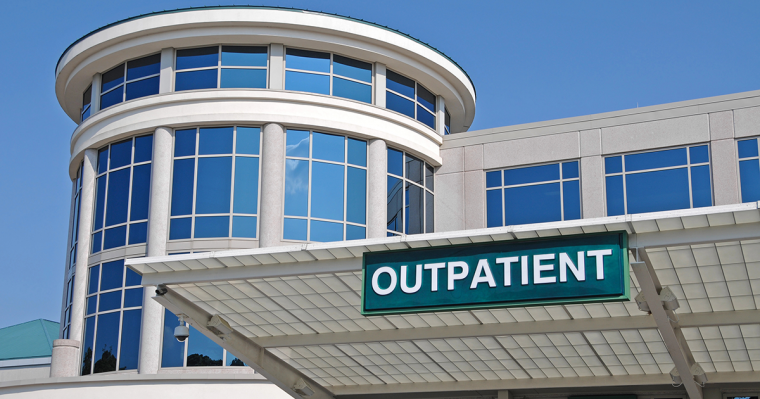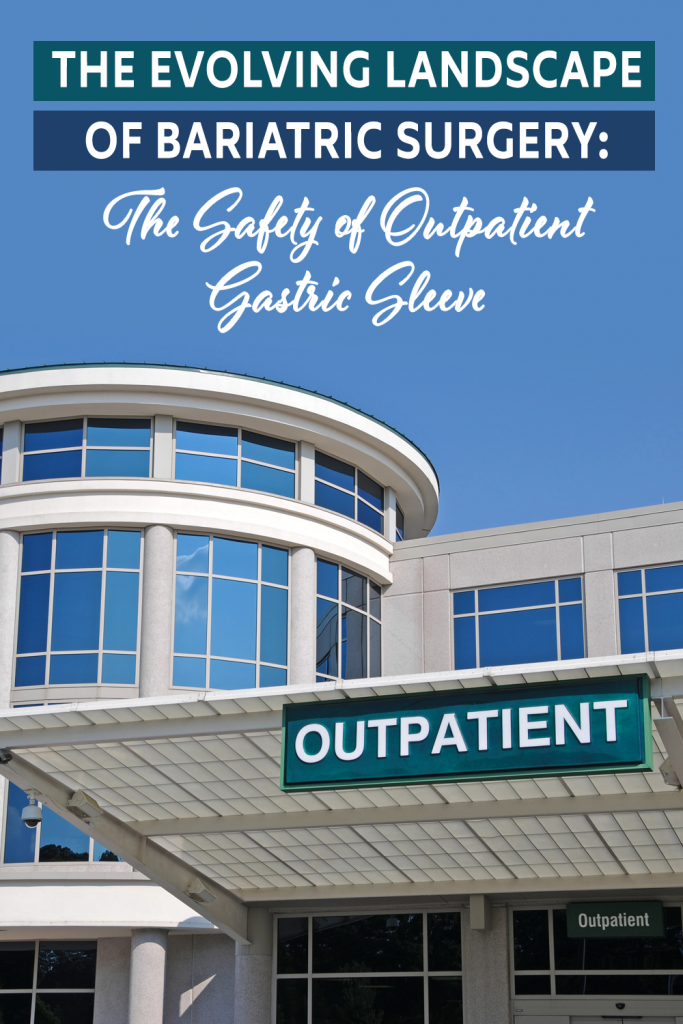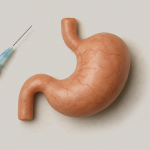
The Evolving Landscape of Bariatric Surgery: The Safety of Outpatient Gastric Sleeve
October 13, 2025The Safety of Outpatient Gastric Sleeve: A global shift is occurring in healthcare, with a growing number of hospital procedures moving to ambulatory surgical settings. This paradigm shift has significantly impacted bariatric surgery, where surgeons have been performing outpatient sleeve gastrectomy (SG) since 2010. Once considered a procedure requiring extended hospitalization, the safety and viability of same-day discharge (SDD) following laparoscopic sleeve gastrectomy (LSG) in carefully selected patients at experienced U.S. centers are increasingly supported by robust evidence.
Thirty years ago, the idea of same-day discharge for procedures like hernias, gallbladders, and hysterectomies might have seemed revolutionary, if not "crazy and unsafe." However, as medical advancements have progressed, these procedures have become routine outpatient surgeries. Similarly, bariatric surgery, particularly laparoscopic sleeve gastrectomy, is now demonstrating comparable safety profiles in outpatient settings to traditional inpatient care, positioning it as a safe and viable option for many patients.
Evidence for Safety of Outpatient Gastric Sleeve in Selected Patients
Recent studies underscore the safety of outpatient LSG. A prospective multicenter standard of care study concluded that SDD following LSG appears safe in highly selected patients at experienced U.S. centers. This study reported low 30-day complication rates (1.6%), reoperations (0.5%), readmissions (0.2%), and emergency department visits (0.2%), with no mortalities or leaks.
Another comprehensive analysis of 457 same-day discharge bariatric cases, predominantly SG, reported an overall 30-day complication rate of 2.1% and high patient satisfaction. These findings align with existing literature, indicating that outpatient gastric sleeve outcomes are consistent with both retrospective outpatient studies and prospective inpatient hospital-based studies.
The Importance of Individualized Patient Selection and Care
The success and safety of outpatient bariatric surgery heavily depend on a patient-by-patient assessment, taking into account overall health, risk factors, the specific type of procedure, the medical team's expertise, the surgery center's capabilities, and the patient's recovery potential. Strict criteria is paramount for selecting appropriate candidates for SDD. These criteria often mirror those set by organizations like the American Society for Metabolic and Bariatric Surgery (ASMBS).
Beyond preoperative selection, patients must meet specific postoperative discharge milestones, such as controlled pain on oral medications, tolerance of fluids without nausea or vomiting, and stable vital signs. Each participating center often adheres to its individualized standard of care and Enhanced Recovery After Surgery (ERAS) protocols to ensure meticulous patient selection and adherence to recovery guidelines.
Advancements Driving Safety
The increasing safety of outpatient bariatric surgery is a testament to continuous advancements in various fields:
Minimally Invasive Surgery (MIS) Techniques
Technological advancements in MIS have revolutionized bariatrics, significantly reducing postoperative pain, recovery time, and hospital stays, while improving cosmetic outcomes and cost-effectiveness. MIS is now an essential part of standard bariatric surgical care.
Enhanced Recovery After Surgery (ERAS) Protocols
ERAS protocols are comprehensive, multimodal approaches to perioperative care that aim to reduce surgical stress, minimize complications, and accelerate recovery. These protocols include optimized anesthesia, early mobilization, effective pain management, and standardized diet plans, leading to less pain, nausea, and fatigue; shorter hospital stays; and faster resumption of activities.
Improved Pain Management
Advancements in anesthesia techniques effectively manage pain and reduce opioid use. These techniques contribute to quicker recovery and discharge.
These improvements collectively address concerns previously associated with outpatient procedures, such as postoperative complications, insufficient patient monitoring, and inadequate pain management.
A New Standard of Care
The comprehensive investigation of LSG in outpatient settings provides significant clinical insights, demonstrating that outpatient LSG can offer a more cost-effective and expedient avenue for patient care while maintaining high standards of safety and achieving desired surgical outcomes. The low incidence of complications, absence of 30-day mortality, and minimal occurrences of reoperation or readmission rates suggest substantial reductions in healthcare expenses and improved access to bariatric surgery.
Much like how our perceptions of safety and convenience evolve with technology—where, as an analogy, ten years ago we might have taught our children not to get into cars with strangers, but today we might tell our teenagers to call a ride-sharing service on their phone—the medical community's understanding and implementation of safe outpatient procedures continue to advance. Outpatient bariatric surgery, particularly LSG, is rapidly moving towards becoming a new standard of care, offering a safe and effective option for carefully selected patients.
Pioneering Outpatient Care: The Nicholson Clinic's Approach
At the forefront of this evolving landscape, practices like the Nicholson Clinic have embraced and helped advance same-day bariatric surgeries. This approach offers significant benefits to patients, including greatly reduced costs and recovery times, all while ensuring patients receive the highest level of surgical care at some of the top outpatient facilities in the country. The clinic's commitment to patient selection, advanced surgical techniques, and comprehensive post-operative care reflects the broader medical community's dedication to making bariatric surgery more accessible, efficient, and safe for eligible individuals.
Dr. Nick Nicholson practices out of the Nicholson Clinic for Weight Loss Surgery.

 | ABOUT THE AUTHOR Dr. Nick Nicholson is one of the nation’s leading bariatric surgeons. He’s been performing weight loss surgery since 2001 and has helped patients from ALL 50 states and 11 countries. He leads a team of top surgeons specializing in Sleeve Gastrectomy, Gastric Bypass, SADI-S, Duodenal Switch, LAP-BAND, Revisions, Gastric Balloon, and abdominal surgery such as gallbladder removal, abdominal wall hernia repair, and hiatal hernia repair to treat acid reflux. He practices out of the Nicholson Clinic for Weight Loss Surgery. |



